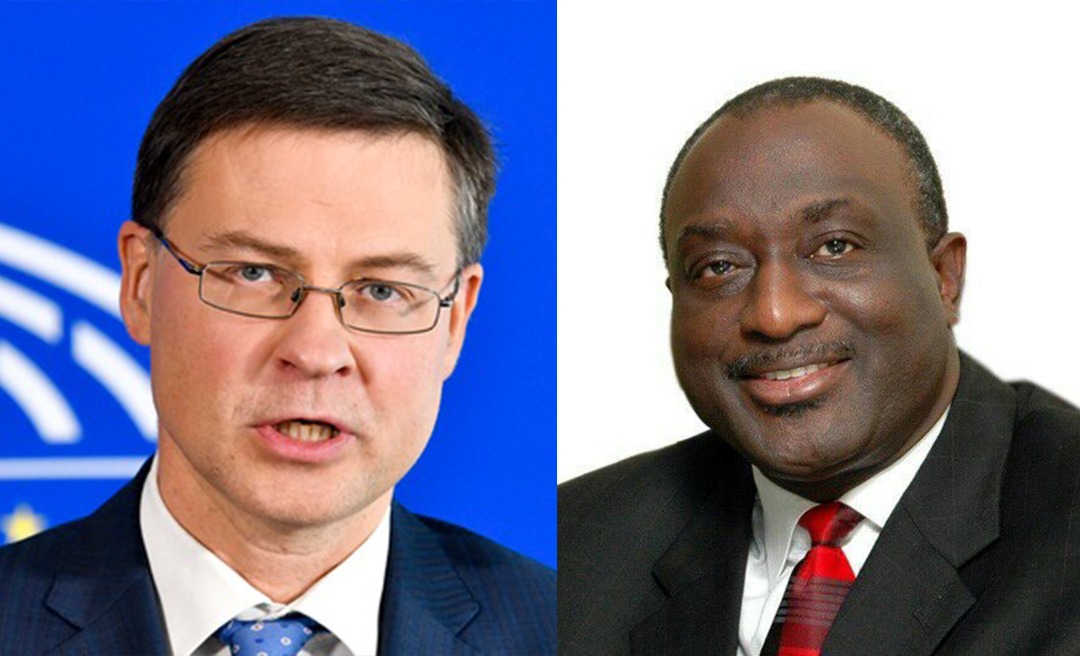Despite the 1% revenue loss, the Deputy Minister for Trade and Industry, Herbert Krapa say, the country would enjoy more economic and development benefits from the agreement.
Ghana to lose 1% revenue over interim trade deal with the EU
Ghana is projected to lose one per cent of its total revenue due to the implementation of its interim Economic Partnership Agreement (iEPA) with the European Union (EU).
Removing import duties on goods from the EU in the duty-free and quota-free agreement accounts for the loss.
The Ghana Revenue Authority (GRA), as of December 2020, collected total revenue of GH₵ 45,338.69 billion.
This means the country would lose about GH₵453.38 billion in revenue through the agreement.
Nonetheless, the Deputy Minister for Trade and Industry, Herbert Krapa, has said the economic benefits and development assistance that the country would gain from the interim trade agreement far outweigh the expected revenue loss.
“The trade agreement offers Ghana the opportunity to take advantage of development assistance provided by the EU. The projection in terms of revenue loss is 1% over the period of the implementation of the agreement,” he said.
According to him, “if you juxtapose that with the benefits, we are going to derive from the pact in terms of how much we are enjoying in exporting into the EU, it’s massive. We are going to attract more foreign direct investment (FDI), the free zones will expand, and more jobs will be created,” he stated.
The deputy minister assured businesses in the country that they would be positioned to benefit from the pact and allayed their fears of any possible collapse due to the iEPA.
The trade agreement between Ghana and the EU that took effect last Thursday, June 1, 2021, is “crucial for developing and diversifying our bilateral trade.”
It also creates better opportunities for EU companies to trade and invest in Ghana and produce goods for export to the wider African market under the African Continental Free Trade Area.
The Executive Vice-President and Commissioner for Trade of the European Union, Valdis Dombrovskis and the Minister for Trade and Industry, Alan Kyerematen, said this in a joint statement announcing the commencement of the agreement.

Background
In August 2016, Ghana ratified the interim Economic Partnership Agreement (iEPA) with the EU. The agreement was subsequently approved by the European Parliament in December 2016 and has been in place since then.
The iEPA is a trade and development agreement that secures Ghana’s free access to Europe’s market for Ghanaian goods to sustain Ghana’s economic growth through trade, investment and employment.
The agreement also establishes an institutional partnership between Ghana and the EU on trade matters.
READ ALSO: UK Finalises Post-Brexit Trade Deal With Ghana
Ghana’s trade with the EU amounts to €5.5 billion (approx. GH₵ 25.6 billion), with the EU being Ghana’s main market for its agri-business products (cocoa beans and transformed cocoa, canned tuna, fruit etc.) and supplies a large part of the equipment that contributes to economic growth.
The EU also supports the country’s competitiveness through dedicated development cooperation programmes at national and regional levels.
Ghana and the EU are actively engaged in adopting the regional West Africa EPA, which will eventually replace the iEPA.



